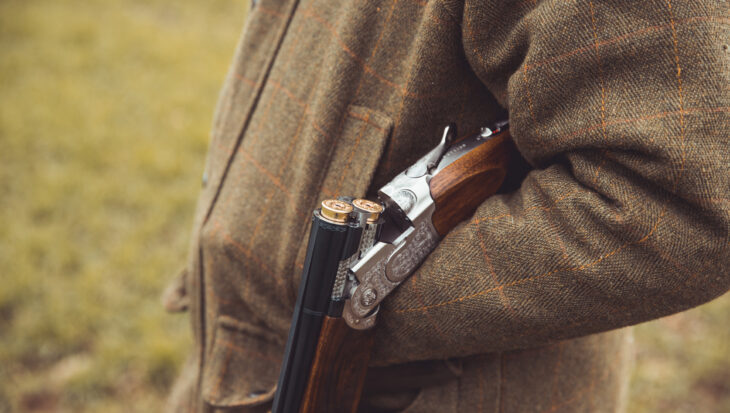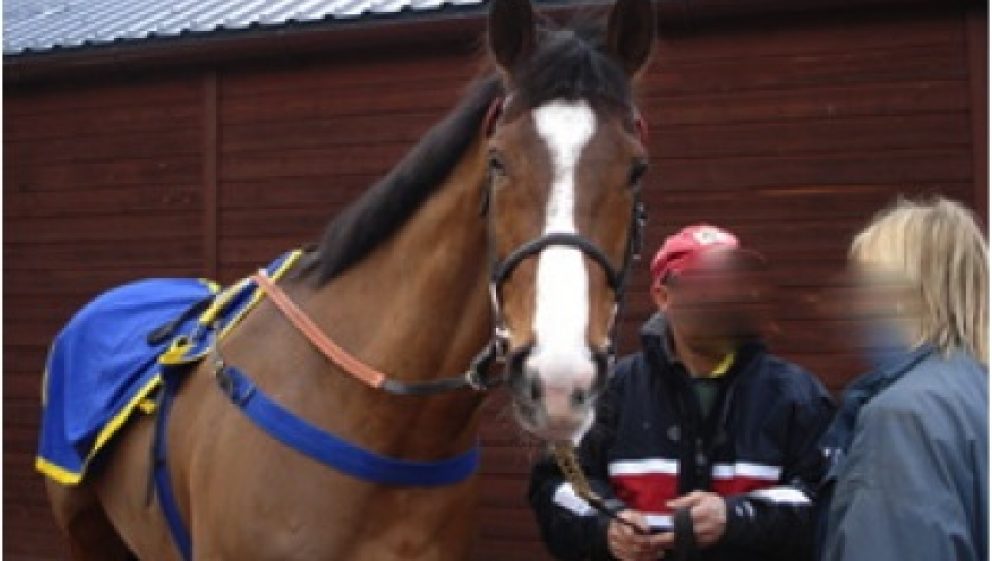Ban on the use of lead shot – finally!
Posted 10 Jul 2025

Posted on the 8th August 2018
The biggest step in improving race horse welfare is almost within reach. Just a few more thousand signatures on Animal Aid’s government petition would offer the opportunity for a landmark intervention by Parliamentarians.

Animal Aid will then have the chance to make a case to remove the current race horse welfare regulator, the British Horseracing Authority, and replace it with a truly independent regulator that has no commercial links with the racing industry. This would, at least, improve horses’ lives.
The following is an article by Dene Stansall, Animal Aid’s Horse Racing Consultant, who looks back from a personal point of view at the life and death of race horse Capped For Victory.
What happened to Capped For Victory is what happens to thousands of horses each year, who, having survived their time racing, are then left to a free-market and luck as to their future. It is one example of how an individual race horse is failed by the system and is disposed of, at will. This is just one aspect of racing that needs to change. In the longer term, of course, we’d like to see an end to racing altogether.
Capped For Victory
Capped For Victory was a race horse whose ‘promising’ start in life gradually turned sour. Passed from owner to owner and trainer to trainer via the horse sales, the horse finally received ‘no bid’ after a ‘Selling race’ and his fate was sealed.
As race horse consultant for Animal Aid for the past twenty years, I’ve attended horse sales annually. I have seen thousands of horses change hands. For a few of the very vulnerable I have found homes. But it is an impossible task to take every horse in need. There are many horses I could speak of, but one particular horse stands out, his name was Capped For Victory. Back in 2009 we came face to face at the DBS horse sales (see photo). I should have taken him. I didn’t.
Horse ‘bloodstock’ sales are not the best of places and it can be distressing seeing equines – young, old and those in the middle – awaiting their fate.
He was one of those in the ‘middle’.
Officially known as Capped For Victory (USA) he was born on 14 May 2001 amid the world’s elite breeding centre for race horses in the blue grass mid-state of Kentucky. With the finest of bloodlines, including the legendary Nijinsky, he was a potential star equine. Also, having the richest owner in racing, he was, as would be expected, sent to one of the best of trainers in the world, Sir Michael Stoute, based in Newmarket, to be primed for racing. The horse was to be ridden, amongst others, by Champion Jockey Kieren Fallon, and was expected to win; and win big.
At 2-years-old he had his first race. He was beaten in a photo finish by the very minimum of margins, a ‘short head’. In his second race, a month later, he finished just half-a-length behind a future Classic winner Rule Of Law. This was okay. His next race, however, set a precedent for his future. As hot favourite at odds-on of 1 to 4, in a maiden race at the minor course of Yarmouth he should have ‘gone in’. He didn’t and was easily beaten. On the back of three more races the next season and blank sheet he went to the horse sales (twice within a month).
He was sold for 23,000gns then 16,000gns (approx. £24K & £17K). His fee was moving down, and he was moving up. Up north to be exact, which is not, generally, a good sign if you are a race horse. He was now gelded – another sign of a ‘moderate’ animal in the racing world.
He clearly didn’t settle in his new surroundings or train-on. In three of his next four races he finished last and was passed, again, on to a new trainer.
His fall from heights was conspicuous and this is where I first came to notice the lad.
After two more seasons, Capped For Victory still hadn’t got his head in front to finish first in any of his races. He was bred for flat racing. Yet, as with many such horses they end up jumping hurdles and fences. He had one hurdle race (21 Jan 2009) in which he was hopeless. Within seven days he was at the sales yet again.
Lot 230 DBS Sales 28 Jan 2009. To be ‘Sold as he stands.’ This is basically to be sold as seen and without a vet’s certificate. There is no term implied in his sale that he is of satisfactory quality or is suitable for racing or any particular purpose. This doesn’t help a horse’s chances of finding a home.
I watched the boy go around the sale-ring. The auctioneer started the bidding at £10,000 guineas with no takers. Within seconds the bid price plummeted, nine, eight, seven… it was down to a thousand, then a last ditch attempt to get a bottom line sale for £500 guineas (£525) proved fruitless. The hammer went down and the lad was taken out of the ring – no-one wanted him.
I followed him as he was taken away. There were some brief discussions going on. I know that some deals are done ‘outside of the ring’ after minimum bids are not met. I then photographed him (see above). I was tempted to step in and offer a couple of hundred pounds, but already having two horses to care for I was stretched and ill-prepared to take him on the spot. After all, I was expecting him to be sold that day.
We went our separate ways. A couple of days later and after some careful thought, I decided that I could give this lad a home. I contacted his trainer to whom I presumed the horse had been returned. The man was having his breakfast and with a mouthful of food he told me in plain terms why the horse went to the sales, ‘…he couldn’t win at Southwell …the Musselburgh race was his race to show what he could do over timber. Owners don’t want losers and neither do trainers.’
The horse had been given away ‘free’ to yet another trainer.
I contacted the person who was now his fourth trainer / come owner. It seemed a tentative situation the horse was in, so I aimed to keep in touch. But I lost track of him and time passed quickly.
Six months later my heart sank after I saw that Capped For Victory had run in the lowest of the low races – a Seller at Wolverhampton. He had reached rock bottom. The race had, weeks earlier, come and gone, and I’d missed seeing the result.
In it, twelve lowly rated horses had been lumped together in the mile race on a sand based surface. It’s not easy running on sand for a grass-raced horse. All horses entered in Selling Races are up for sale and can be purchased after the race. However, the also-rans rarely, if ever, get bought. Capped For Victory finished a well beaten 10th of the twelve runners.
I rang the trainer. I wanted to give the horse a secure home with me.
’He’s dead’ came the reply.
Posted 10 Jul 2025

Temperatures are rising and it’s time to get outdoors, enjoy the weather and tuck into some delicious vegan food! Thanks to an abundance of plant-based options now available, there’s an alfresco option for every tastebud...
Posted 09 Jul 2025
